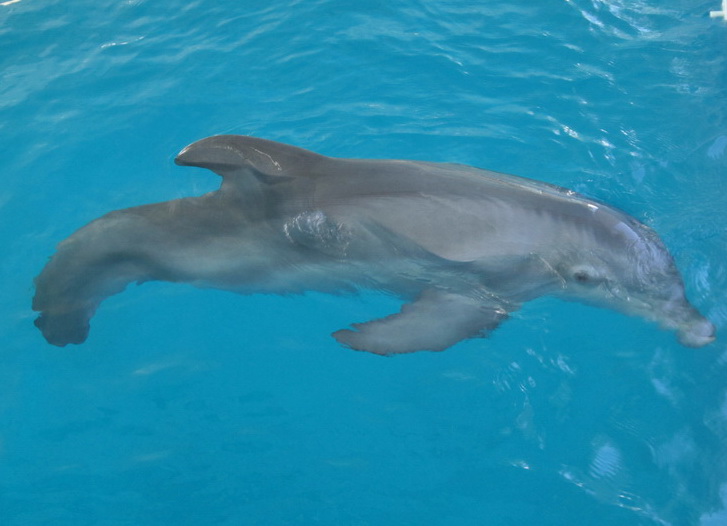by Monica Starr
November 2021
Last week, our beloved dolphin friend, Winter died at the Clearwater Marine Aquarium. The story of this magical creature was inspiring to many people all over the world. After losing her tail because of a crab trap line, Winter was rehabbed at the Clearwater Marine Aquarium. With help from the Hanger Clinic in order to develop a prosthetic tail, she made a full recovery. She was originally found when she was just two months old in the Mosquito Lagoon here in Florida. After living at the aquarium for nearly sixteen years, Winter suffered from intestinal difficulties that led to her death. Dr. Shelley Marquardt, a veterinarian at the aquarium explains that this type of intestinal difficulty occurs very randomly in various species including dolphins, dogs and cats. Dr. Marquardt explains, “We take great comfort in knowing we did everything we could for her and we made her as comfortable as possible and ultimately she passed away with her caregivers and all the people that loved her the most” [1].
Winter, like many marine species was negatively impacted by human activities in the wild. This is an inspiring story that unfortunately does not happen often. Stray fishing line, traps and other debris are often found wrapped around various parts of marine species. Injury, illness and death can all be results of human gear being left in the ocean. Specifically, “ghost nets” and “ghost traps” are terms to describe the abandoned commercial or recreational supplies that are left in the ocean and often never removed. These nets can get caught on various structures including coral reefs. An abandoned crab trap is what caused Winter to lose her tail.
Luckily, there has been lots of outreach and volunteer events in Florida to clean up this type of pollution on the beaches and in the water. Similarly, the practice of “Leave No Trace” has been adopted as a conscious effort to keep our waters in the best condition possible [2]. The concept is pretty simple. It is essential that we leave the areas that we use as clean as possible in order to keep the wildlife safe. For more specifics about how you can “Leave No Trace”, go to this website for a detailed list of mindful actions when enjoying the marine environment that so many call home: https://www.floridagofishing.com/info-leave-no-traces.html
Winter’s success story showed the world how resilient and strong a lot of these marine species can be. That being said, it is so important that we do our part in creating an environment that is safe in order to mitigate human impacts and conserve these species. It is extremely critical that as Florida residents we lead the way in marine conservation and preservation. Improving fishing practices and being mindful of what we add to the environment instead of take is essential moving forward. It is extremely difficult to regulate and enforce laws in the ocean, so it is on us to be responsible with our activities. Winter was an amazing addition to the Clearwater Marine Aquarium for over a decade and she will be missed.
Monica Starr is an intern with Ecology Florida, serving as the Public Communications Facilitator for Ecology Florida News. Monica is a graduate student at the University of South Florida studying Global Sustainability.
[2] https://www.floridagofishing.com/news/2013/ghost-nets-of-the-sea.html


Leave a Reply